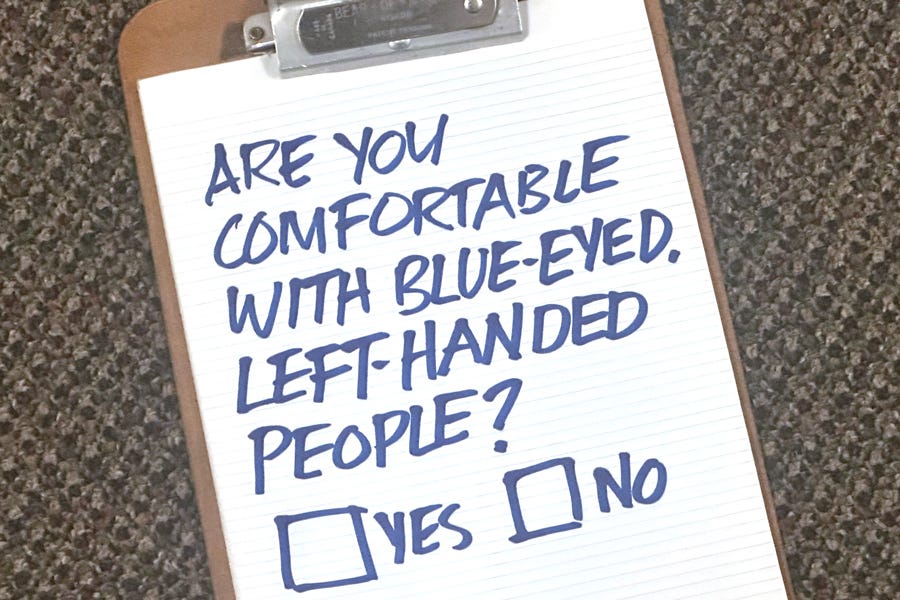Urgent Call for Responsible Journalism: Rethinking Coverage on Trans Issues
By Lisa Salazar
Responding to the dumb questions asked by CTV News commissioned survey.

The recent story by CTV News, "Trans your policies make majority of Canadians 'uncomfortable': Survey," based on a survey by Nanos Research, raises significant ethical and journalistic concerns. The survey's focus on Canadians' discomfort with trans-inclusive sports policies, hormone therapies for youth, and the acknowledgment of chosen pronouns and names in schools employs a methodology that inherently frames trans identities as subjects of public debate and scrutiny rather than affirming their rights and dignity.
Firstly, the methodology of pulse surveys, while useful in capturing immediate public sentiments, often lacks depth and fails to engage with the complex realities of those it surveys. In this case, the lived experiences of trans individuals and the systemic challenges they face are glaringly absent. The survey's framing positions trans identities as a matter of public comfort rather than focusing on the rights, well-being, and acceptance of trans people. This approach mirrors historically problematic surveys that have sought public opinion on the rights and existence of marginalized communities, which only serve to reinforce stigma and discrimination.
Furthermore, the article fails to critically engage with the implications of the survey's findings. By not providing a counter-narrative or context from trans individuals or experts in gender studies, the article implicitly validates the discomfort expressed in the survey as a legitimate stance against trans rights. This is not only journalistically irresponsible but also socially harmful, as it contributes to a climate of intolerance and misunderstanding.
The ethical considerations in conducting and reporting such surveys are paramount. It's crucial to question why it's deemed acceptable to gauge public comfort with the existence and rights of a marginalized group. Such practices are reminiscent of historical injustices where the rights and humanity of individuals were subjected to the biases and prejudices of the majority. The media is responsible for challenging societal prejudices, not amplifying them under the guise of reporting public opinion.
Surveys and articles that frame the existence and rights of trans individuals as a subject for public debate contribute to an environment of exclusion and harm. Journalism should strive to inform, educate, and promote understanding and empathy rather than exacerbate divisions and prejudice. It's time for CTV News and other media outlets to reevaluate their approach and commit to responsible, empathetic, and inclusive journalism.
Would you go around asking Canadians to rate their level of comfort with people of different races and not expect to get flack for the stupidity and insensitivity of the question?
In summary, building on the absurdity of the pull quote, it's crucial to reflect on the broader implications of such surveys. Just as it would be unequivocally inappropriate and insensitive to gauge comfort levels with individuals of varying racial backgrounds, so too is it problematic to survey public opinion on the existence and rights of trans individuals. This approach not only trivializes the lived experiences of marginalized communities but also perpetuates a culture of 'othering' that undermines the principles of inclusivity and respect. In striving for a society that values every individual's dignity, the focus should be on education, understanding, and empathy rather than on the masses' approval or disapproval of one's identity. This perspective shift is essential in fostering an environment where diversity is not just tolerated but celebrated.


Comments
Post a Comment
I welcome your comments, and to maintain a friendly platform, please avoid demeaning or pejorative rants, but of course, that doesn't apply to you. Right?